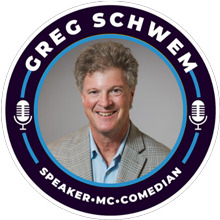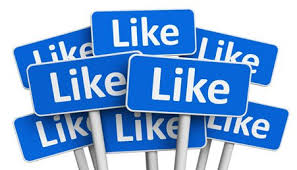Improving my life these days seems to revolve around lists. Or bullet points.
I need only check my Twitter or LinkedIn feeds to see the numerical-driven headlines, followed by tidy rows of self-help suggestions: Five Reasons You Should Quit Your Unsatisfying Job; Ten Ways to Raise More Respectful Children; Thirteen Reasons You Should Turn off LinkedIn and Twitter, Fifty-Five Ways to Make Better Lists…
The number of lists I’ve devoured would need its own list.
There seems to be no rhyme or reason to the actual number of proposals, suggestions and calls to action contained in each list; I assume whoever authored “Nine Ways to Remove Unsightly Male Belly Fat” either developed an incurable case of writer’s block that prevented him from publishing a nice round number of 10, or was so anxious to begin acting on his own advice that he switched off his computer and ran to the local sporting goods store to purchase an ab cruncher.
Conversely, absorbing some lists in their entirety requires, at the very least, a bathroom break. I still haven’t completed “107 Mind-Blowing Sales Statistics That Will Help You Sell Smarter.” I’ve met salespeople whose careers were shorter than the time it would take to slog through this article.
But one recent list needed my immediate attention, for I couldn’t bear the thought of venturing out in public without knowing if I was likable.
The article, “Nine Things That Make You Unlikable,” appeared online in Forbes magazine. Citing data from a recent UCLA study, the article used the aforementioned list strategy to assess one’s likability factor. I discovered the article on my iPad while in bed one evening, my wife next to me, engrossed in an online Sudoku puzzle. I interrupted her.
“Honey, you like me, right?”
“No. I love you,” she replied.
“I know, but I want you to like me too.”
“I don’t ‘like’ where this conversation is heading,” she said, pausing the game.
“Can I just ask you nine quick questions?”
“Nine doesn’t sound quick but fire away.”
“Do I share too much, too early?”
“If you’re referring to that blow-by-blow description you gave me of your prostate exam, then yes.”
“Does that make me unlikable?”
“It makes you kind of gross. Especially when you showed me the photos. What’s the next question?”
“Do I whip out my phone when we’re talking?”
“If that’s a trait among unlikable people, then most of society hates one another.”
“True,” I said. “Let’s move on. Am I an emotional hijacker?”
“What is that supposed to mean?”
I scrolled through the article to find the explanation, a very easy maneuver when information is formatted in quick, bite-sized morsels as opposed to lengthy paragraphs.
“Do you feel like I’m unstable? Unapproachable? Intimidating?”
“Only when you’re attempting a home repair project. But that doesn’t make you unlikable. Lots of people like it when you try and fix things. Let’s see, our plumber, our electrician…”
“Very funny. Moving on…do I ask enough questions? The article says that unlikable people don’t do that.”
“If this conversation is any indication, then you are extremely likable.”
“OK, one last question. Do I name drop? I mean, outside of that story I always tell about sitting next to Vince Vaughn on that Boston to Chicago flight?”
“I do think it’s time you stop casually mentioning that you opened a concert for Huey Lewis in 1995. Most people today can’t remember Huey Lewis. Or 1995 for that matter.”
I elected to stop, even though I hadn’t covered all nine questions. My wife resumed her game, blissfully unaware that she had just labeled me unlikable due to her honesty.
I was left to ponder whether I should rely on the internet to determine my likability factor. Perhaps I do gossip too much, appear close minded at times and “humble brag,” all signs of unlikability, according to Forbes. I vowed to be more aware of my habits and conversation tactics the next time I was in a social situation.
I also vowed to create my own list: “Ten Reasons Never to Read Forbes Magazine in Bed.”




The F-Bomb Has Gone Mainstream — And Nobody Cares Anymore